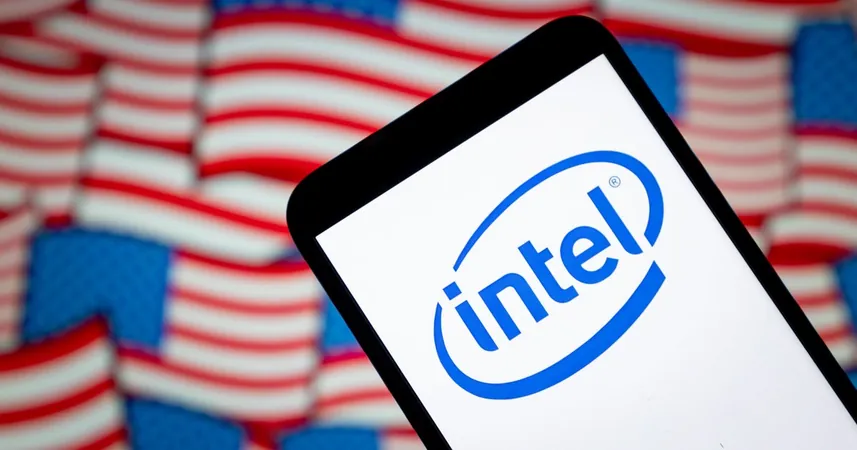
Trump Administration's Controversial Move: Buying Into U.S. Companies Sparks Outcry
2025-08-29
Author: Ming
Raising Eyebrows Over Government Stakes
In a bold and controversial move, the Trump administration has announced a 10% investment in Intel, a decision that has sent shockwaves through conservative circles and financial experts alike. Critics argue that this level of government intervention threatens the very foundation of free enterprise.
Experts Raise Red Flags
Kevin Hassett, head of the White House National Economic Council, has hinted at the possibility of more transactions beyond Intel, which immediately triggered alarms among economists. Adam Posen, president of the Peterson Foundation for International Economics, didn't mince words, calling the situation a slide into a dystopian reality akin to George Orwell's 'Animal Farm.'
Conservative Voices Speak Out
Prominent conservative commentator Erick Erikson expressed his concerns, declaring, "You can’t just oppose socialism when the left does it." He cautioned that if government actions resemble socialism, America could be on a slippery slope toward it.
Motivation Behind the Investment
Trump touts the investment as a strategy to boost domestic chip production and lessen reliance on foreign companies, especially in the high-stakes race for technological supremacy against China. However, many point out that the U.S. has already backed Intel through the CHIPS and Science Act, calling into question the need for direct ownership.
The Financial Picture
Intel's recent history is less than stellar, with losses nearing $19 billion last year, and another $3.7 billion in the first half of this year. Despite this, the Trump administration insists that they are acting in the best interest of American taxpayers by securing a return on investments already made under previous government initiatives.
Concerns of Cronyism and Political Pressure
Experts warn that government ownership could lead to increased cronyism and politicization of corporate decisions. With the government as a major shareholder, Intel could face pressure to make choices based on political expediency rather than economic sense.
A Look Back at Government Interventions
Historically, moments of government investment, such as the 2008 bailout of banks and auto manufacturers, occurred during crises. Now, critics question the wisdom of such a move when the economy is not floundering. The contradiction between criticizing China's government-controlled economy while advocating for increased U.S. governmental involvement does not escape scrutiny.
Is This a Step Towards State Capitalism?
While proponents claim it's merely capitalism in action, skeptics argue this blurring of lines between public and private sectors inch closer to state capitalism, if not outright socialism. Analysts note that such government intervention threatens to create market inefficiencies and deflect investment away from other companies.
The Uncertain Road Ahead
As the Trump administration charts this unprecedented territory of partial government ownership, the implications for both the economy and taxpayers remain to be seen. While officials claim they are acting in the nation's best interest, the debate over the impact on American capitalism is just beginning.

 Brasil (PT)
Brasil (PT)
 Canada (EN)
Canada (EN)
 Chile (ES)
Chile (ES)
 Česko (CS)
Česko (CS)
 대한민국 (KO)
대한민국 (KO)
 España (ES)
España (ES)
 France (FR)
France (FR)
 Hong Kong (EN)
Hong Kong (EN)
 Italia (IT)
Italia (IT)
 日本 (JA)
日本 (JA)
 Magyarország (HU)
Magyarország (HU)
 Norge (NO)
Norge (NO)
 Polska (PL)
Polska (PL)
 Schweiz (DE)
Schweiz (DE)
 Singapore (EN)
Singapore (EN)
 Sverige (SV)
Sverige (SV)
 Suomi (FI)
Suomi (FI)
 Türkiye (TR)
Türkiye (TR)
 الإمارات العربية المتحدة (AR)
الإمارات العربية المتحدة (AR)